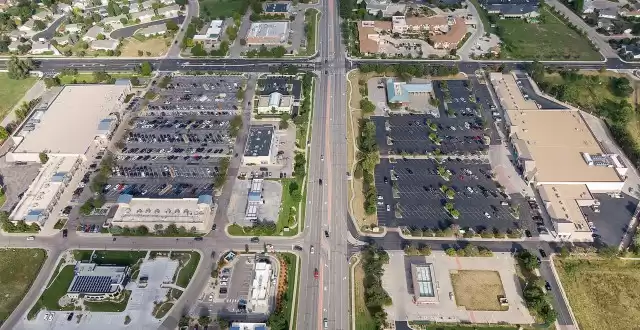Proposed Kroger-Albertsons Merger Raises Concerns about Closures and Agricultural Impacts in Greeley
Greeley residents fear that the proposed merger of Kroger and Albertsons will result in store closures, higher prices, and job losses. Regulators are reviewing the merger, and concerns about previous closures during mergers have been raised. Labor groups argue that the merger puts union jobs at risk, while farmers worry about decreased competition and potential food deserts in rural areas. Colorado Attorney General Phil Weiser is skeptical of the promises made by the companies and plans to meet with executives before deciding whether to challenge the merger. Public comments on the merger can be submitted to coag.gov/grocerymerger.
Fear and concern loom over grocery shoppers in the Greeley area as they contemplate the potential consequences of a proposed merger between two major supermarket chains. Kroger, the parent company of King Soopers, and Albertsons, the parent company of Safeway, entered into an agreement in October 2022 to merge their operations. The merger aims to strengthen the stores' competitive position against rivals like Walmart, Costco, online grocers, and discount grocers. However, shoppers worry that the consolidation could lead to store closures, limited options, increased prices, and job losses.
The merger is currently under review by regulators, including the Federal Trade Commission and various state attorneys general. Colorado Attorney General Phil Weiser, who hosted a listening session about the merger, remains skeptical of the promises made by the companies. He questions their commitment to keeping stores open and their plans to divest some stores to another entity.
The closure of the Safeway in downtown Greeley during the Albertsons-Safeway merger in 2014 serves as a cautionary tale for residents. The closure left the area without a grocery store, creating what is known as a food desert. Safeway claimed at the time that the closure was unrelated to the merger and simply a strategic decision. However, a 2019 report from the Colorado Trust revealed that similar promises of no store closures were made during the 2014 merger, yet the number of Safeway and Albertsons stores in the state has significantly decreased since then.
Weiser draws on the previous merger's outcome to fuel his skepticism about the potential spin-off of stores by Kroger. In the 2014 merger, Albertsons sold stores to a thinly capitalized company that later went bankrupt. Consequently, those stores either closed or were repurchased by Albertsons. Weiser worries that history may repeat itself, leaving communities without access to essential groceries.
Doug Irwin, a meat cutter at a King Soopers store in Greeley, expresses concern that the merger could result in the closure of unionized stores. This would negatively impact the United Food and Commercial Workers Union Local 7, as fewer members would contribute to the pension fund. Irwin, who has been with King Soopers for 17 years, relies on this pension to support his family. Company executives claim that they will invest $1 billion in wage increases and benefits for employees while maintaining unionized grocery stores. However, the Stop the Merger Coalition, comprising labor and consumer advocacy groups, argues that the merger could put 100,000 union jobs at risk.
Farmers and ranchers also voice their apprehension about the merger. Bob Kjelland, communications director for the Rocky Mountain Farmers Union, and a member of the Weld County Farmers Union, highlights concerns about the reduction in buyers from two to one. This consolidation would give Kroger significant pricing power in the absence of competition. Additionally, agricultural producers worry about the potential impact of food deserts on rural communities. Rural areas already have limited choices, and the merger could exacerbate the problem.
Colorado's Attorney General Weiser acknowledges the challenges faced by rural communities and the potential consequences of the merger. He emphasizes that rural areas often have fewer options, leading to heightened concerns about the merger's implications. Weiser points out that reductions in the supply chain can result in less resilient markets, as demonstrated by the difficulties experienced by shoppers during the peak of the COVID-19 pandemic.
The town of Windsor, with only two supermarket chains, King Soopers and Safeway, situated across from each other on Main Street, is particularly vulnerable to the merger's effects. Weiser plans to hold a listening session in Windsor to gather further input from the community.
Weiser intends to meet with company executives in October to gather more information before making a decision on whether to challenge or allow the merger. The merger is expected to be finalized in early 2024. In the meantime, Weiser's office is actively collecting public comments on the proposed merger through their website, coag.gov/grocerymerger.












Comments on Proposed Kroger-Albertsons Merger Raises Concerns about Closures and Agricultural Impacts in Greeley